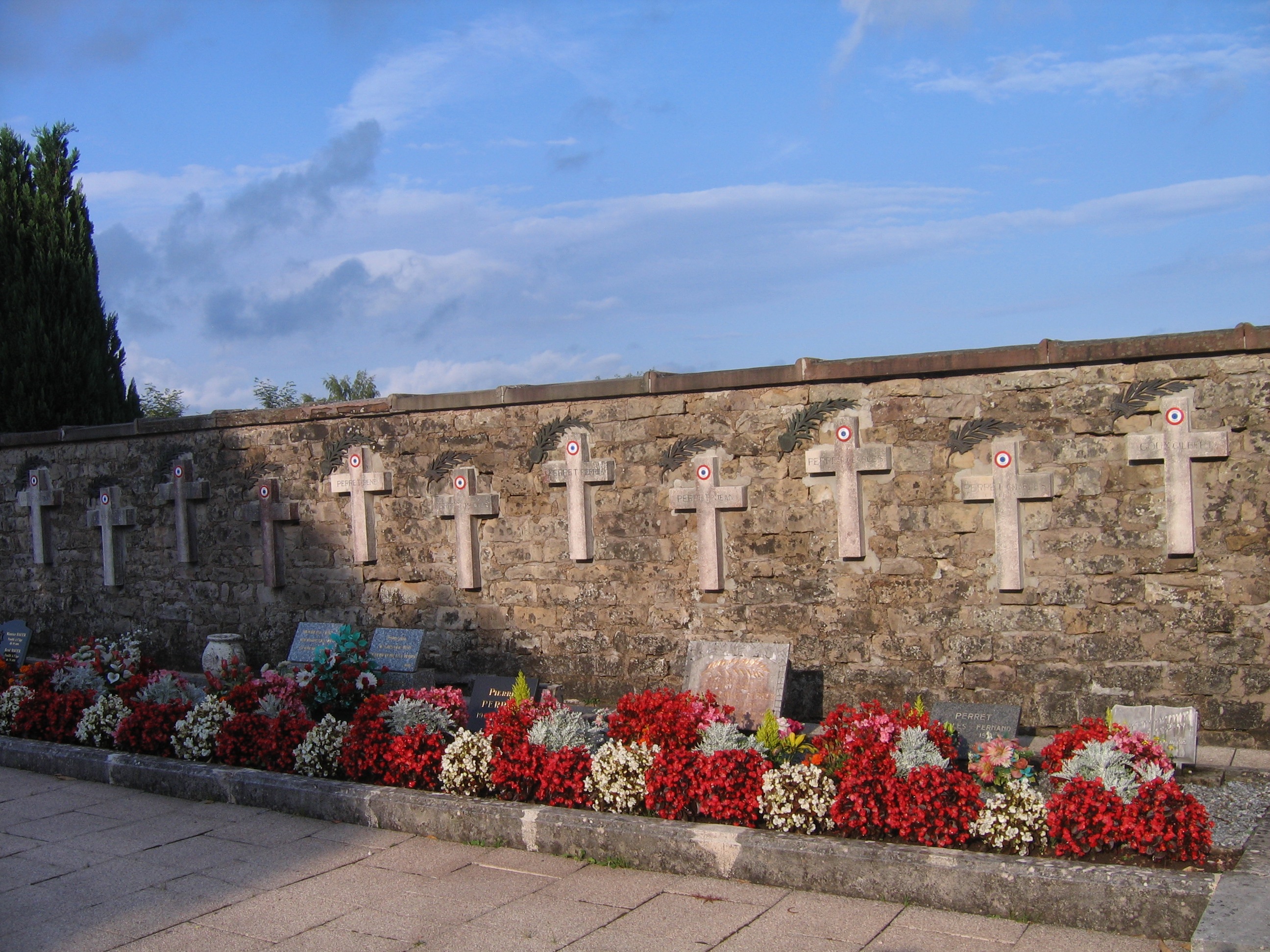The Church at Chenebier
You can still see the bullet holes on the side of the Lutheran church at Chenebier. Even today, you can see where they pitted the stone of the church wall. Bulletholes in the church wall at ChenebierA few up high, higher than a man’s head. But lower, where a man’s head would be if he were on his knees, the wall is pocked with them. When I first saw them, I didn’t know what I was looking at. Monsieur Widmer called me over to the tiny pavement at the side of the church. It was sunny. I was dazed. He said, “Did you know, Madame, they shot forty men here? Just here. During the war. I remember hearing the planes go over at night, going to Germany. How happy it made me. We love Americans, Madame. It makes me angry to hear them criticized.” My eyes teared up. What was he talking about, forty men, just here? The 27th of September, 1944, 39 Glorious Martyrs Were Shot Here By The Germans. France Will Not Forget.The pavement by the church wall was maybe 12 feet long and 8 feet wide – the size of a small room. But the bullet holes were there.
Just a few months before that Sunday in August 2004, I was dreaming of my new life as a French pastor. The grit and poverty of western Pennsylvania would be just a memory. An historic parsonage waited for me. Baguettes would be delivered fresh each morning. There would be French yarn for my knitting needles. What I didn’t expect was to find an atrocity at the center of my parish.
 Katherine Douglass
Katherine Douglass
The Lutheran church at ChenebierThe church, or temple, as Protestant churches are called in France, at Chenebier is built of stone, as are all Lutheran churches in the Franche-Comté. Chenebier is of more recent construction than many of those Lutheran churches, some of which date to the middle ages. Most of the older churches have what is called the "clocher comtois," a bell-shaped steeple faced with glazed ceramic tiles. The steeples at Chenebier and Etobon are "arrow" steeples, more familiar to American eyes.
The temple at Chenebier is remarkable for more than its plain reformation architecture. There is a marker at the entrance to the small parking area that refers to the Place des Fusillés, the place of the ones who were shot. On the right side of the temple is a small space, now planted with roses and seasonal flowers, that is the hallowed ground where 39 neighbors from Etobon were massacred by a German machine-gunner. Place of the murdered of Etobon
